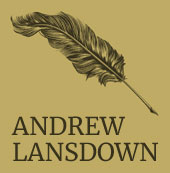Six poems by Gerard Manley Hopkins:
1. “Heaven—Haven: A Nun Takes The Veil”
2. “Felix Randal”
3. “The Windhover: To Christ Our Lord”
4. “As Kingfishers Catch Fire”
5. “The Caged Skylark”
6. “Carrion Comfort” – with a critique by Geoff Page
.
.
Heaven—Haven: A Nun Takes The Veil
I have desired to go
Where springs not fail,
To fields where flies no sharp and sided hail
And a few lilies blow.
And I have asked to be
Where no storms come,
Where the green swell is in the havens dumb,
And out of the swing of the sea.
Gerard Manley Hopkins
[Note: The Innocence Mission has put this poem to music, and done a beautiful job of it. Retitled “No Storms Come”, the poem/song can be found on the CDs Christ Is My Hope and Befriended.]
.
.
Felix Randal
Felix Randal the farrier, O he is dead then? my duty all ended,
Who have watched his mould of man, big-boned and hardy-handsome
Pining, pining, till time when reason rambled in it and some
Fatal four disorders, fleshed there, all contended?
Sickness broke him. Impatient he cursed at first, but mended
Being anointed and all; though a heavenlier heart began some
Months earlier, since I had our sweet reprieve and ransom
Tendered to him. Ah well, God rest him all road ever he offended!
This seeing the sick endears them to us, us too it endears.
My tongue had taught thee comfort, touch had quenched thy tears,
Thy tears that touched my heart, child, Felix, poor Felix Randal;
How far from then forethought of, all thy more boisterous years,
When thou at the random grim forge, powerful amidst peers,
Didst fettle for the great grey drayhorse his bright and battering sandal!
Gerard Manley Hopkins
.
.
The Windhover: To Christ Our Lord
I caught this morning morning’s minion, king-
dom of daylight’s dauphin, dapple-dawn-drawn Falcon, in his riding
Of the rolling level underneath him steady air, and striding
High there, how he rung upon the rein of a wimpling wing
In his ecstasy! then off, off forth on swing,
As a skate’s heel sweeps smooth on a bow-bend: the hurl and gliding
Rebuffed the big wind. My heart in hiding
Stirred for a bird,—the achieve of; the mastery of the thing!
Brute beauty and valour and act, oh, air, pride, plume, here
Buckle! AND the fire that breaks from thee then, a billion
Times told lovelier, more dangerous, O my chevalier!
No wonder of it: shéer plód makes plough down sillion
Shine, and blue-bleak embers, ah my dear,
Fall, gall themselves, and gash gold-vermillion.
Gerard Manley Hopkins
.
.
As Kingfishers Catch Fire
As kingfishers catch fire, dragonflies draw flame;
As tumbled over rim in roundy wells
Stones ring; like each tucked string tells, each hung bell’s
Bow swung finds tongue to fling out broad its name;
Each mortal thing does one thing and the same:
Deals out that being indoors each one dwells;
Selves — goes itself; myself it speaks and spells,
Crying, What I do is me: for that I came.
I say more: the just man justices;
Keeps grace: that keeps all his goings graces;
Acts in God’s eye what in God’s eye he is —
Christ. For Christ plays in ten thousand places,
Lovely in limbs, and lovely in eyes not his
To the Father through the features of men’s faces.
Gerard Manley Hopkins
The Caged Skylark
As a dare-gale skylark scanted in a dull cage,
Man’s mounting spirit in his bone-house, mean house, dwells —
That bird beyond the remembering his free fells;
This in drudgery, day-labouring-out life’s age.
Though aloft on turf or perch or poor low stage
Both sing sometímes the sweetest, sweetest spells,
Yet both droop deadly sómetimes in their cells
Or wring their barriers in bursts of fear or rage.
Not that the sweet-fowl, song-fowl, needs no rest —
Why, hear him, hear him babble & drop down to his nest,
But his own nest, wild nest, no prison.
Man’s spirit will be flesh-bound, when found at best,
But uncumberèd: meadow-down is not distressed
For a rainbow footing it nor he for his bónes rísen.
Gerard Manley Hopkins
Carrion Comfort
Not, I’ll not, carrion comfort, Despair, not feast on thee;
Not untwist — slack they may be — these last strands of man
In me ór, most weary, cry I can no more. I can;
Can something, hope, wish day come, not choose not to be.
But ah, but O thou terrible, why wouldst thou rude on me
Thy wring-world right foot rock? lay a lionlimb against me? scan
With darksome devouring eyes my bruisèd bones? and fan,
O in turns of tempest, me heaped there; me frantic to avoíd thee and flee?
Why? That my chaff might fly; my grain lie, sheer and clear.
Nay in all that toil, that coil, since (seems) I kissed the rod,
Hand rather, my heart lo! lapped strength, stole joy, would laugh, cheer.
Cheer whóm though? The héro whose héaven-handling flúng me, fóot tród
Me? or mé that fóught him? O whích one? is it eách one? That níght, that yéar
Of now done darkness I wretch lay wrestling with (my God!) my God.
Gerard Manley Hopkins
A Critique of “Carrion Comfort” by Geoff Page
Gerard Manley Hopkins (1844-1889) is a poet who, like Emily Dickinson, published almost nothing in his lifetime and became famous only decades later. ‘Carrion Comfort’, written four years or so before his death from typhoid fever, is one of Hopkins’ ‘terrible’ sonnets, poems in which he voices the ‘terrible’ dynamics of his struggle with God.
Earlier Hopkins had written some of the most vivid and lyrical nature poetry in English (albeit within the prism of his Christian faith). By 1884/5 his life as a Jesuit priest in the slums of London, Liverpool, Glasgow and elsewhere had brought him to a very low ebb, both physically and spiritually. ‘Carrion Comfort’ (which he had no intention of publishing in his lifetime) is one of those ‘confessional’ poems which gives true meaning to the term.
For those of us who don’t share Hopkins particular faith it is vital to remember how necessary the ‘suspension of disbelief’ is. A good religious poem should make us understand (at least something of) what it feels like to have that poet’s individual convictions. It’s not just a matter of a few dry theological principles but the emotions involved in the poet’s relationship with God (or the divisions within his own mind, if one takes the atheist’s viewpoint). The religious poem is, in many ways, a genre — like the love poem — and it’s not surprising to find poets like Donne who excel at both.
‘Carrion Comfort’, it must be admitted, is also one of those poems that some readers call ‘difficult’ or ‘obscure’ but which nevertheless repays close and repeated readings. Hopkins by the time he wrote this poem had thought very deeply about what poetry is and how he should employ his own idiosyncratic ideas on rhythm, diction and imagery. His arguments regarding what he called ‘Sprung Rhythm’ are not always easy to follow but, in essence, they talk about accenting the first syllable in a foot and then having a flexible number of unstressed syllables to follow it. He knew from his classical studies — and from his knowledge of Anglo-Saxon — just how different Latin and Greek metres are from those of English — the former based on the length of syllables, the latter based on stress. He remembered, too, how Anglo-Saxon poets had worked with four strong stresses in the line and any number of unstressed syllables. He also knew about their systematic use of alliteration.
Though it is impossible to separate these technical concerns from the meaning of the poem it is still better to look initially for what it seems to be saying. The poet, almost overwhelmed by the temptation to despair, is remembering ‘That níght, that yéar / Of now done darkness’ in which he first lay wrestling with his God. Like the prophet Job, he complains of the way God has treated him, the violence applied to his ‘bruisèd bones.’ He sees despair as something he could feast on, a comfort of dead flesh. He contemplates suicide, how he could ‘choose not to be.’
At the beginning of the sonnet’s sestet, however, Hopkins asks ‘Why?’ Why has God treated him this way? The question is answered immediately: ‘That my chaff might fly; my grain lie, sheer and clear.’ Hopkins doesn’t leave it there, however, as many a lesser and more pietistic poet might. He goes on to dramatise the struggle further, to remember the unequal fight between himself and God that preceded his conversion (or perhaps his decision to join the priesthood). Should he cheer ‘The héro whose heaven-handling flúng me ? … or me that fóught him?’ Can the combatants even be separated? (‘is it eách one?’). The poem ends with a line that is completely typical of Hopkins at his most intense, a reference back through his life to that moment of ‘now done darkness’ in which ‘I wretch lay wrestling with (my God!) my God.’
The last line is a good point, too, to start looking at what Hopkins has been doing technically throughout the poem; to consider the energy generated by his emphatic and irregular rhythms, his heady use of alliteration, assonance and exclamation. We feel the decisive ‘d’s’ in ‘done darkness’; we feel the continuity of the vowels and consonants in ‘wretch’ and ‘wrestling’. We feel the shock, too, when Hopkins realises the full extent of just whom he has been talking to: ‘(my God!) my God.’
We see also that the pentameter line which normally has ten syllables has been stretched to fifteen. Where did they come from? And (even harder) which are the stressed ones? We sense an almost equal emphasis on ‘now’, ‘done’ and ‘dark’ but we also hear one on ‘wretch’, ‘wrest’, ‘God!’ and ‘God’, making a total of seven in all — instead of the expected five. The underlying iambic pentameter has been lost almost completely and yet we are not actually reading free verse. Just as Hopkins wrestles with God so has he also wrestled with language, the resources of vocabulary, alliteration, assonance and free-ranging stresses that go back to the Anglo-Saxon origins of our language.
Some might argue about who won, Hopkins or the language. A.D. Hope certainly wrote a telling parody suggesting Hopkins had lost but, in the case of ‘Carrion Comfort’ — and quite a few others — most readers will, I suspect, feel Hopkins has come off triumphant. Certainly, he has reminded us of the visceral strength of our language and challenged us as users to revel in it.
As for the poem’s religious impact, that will depend a good deal on the convictions of the reader. Some of Hopkins’ more cautious co-religionists may feel almost uncomfortable with the poem while other, more secular readers will continue to remain astonished at the poem’s sheer intensity and its linguistic achievement.
This essay by Geoff Page is from his book 80 Great Poems from Chaucer to Now (University of New South Wales Press, 2006) and is reproduced on andrewlansdown.com by kind permission of the author.

